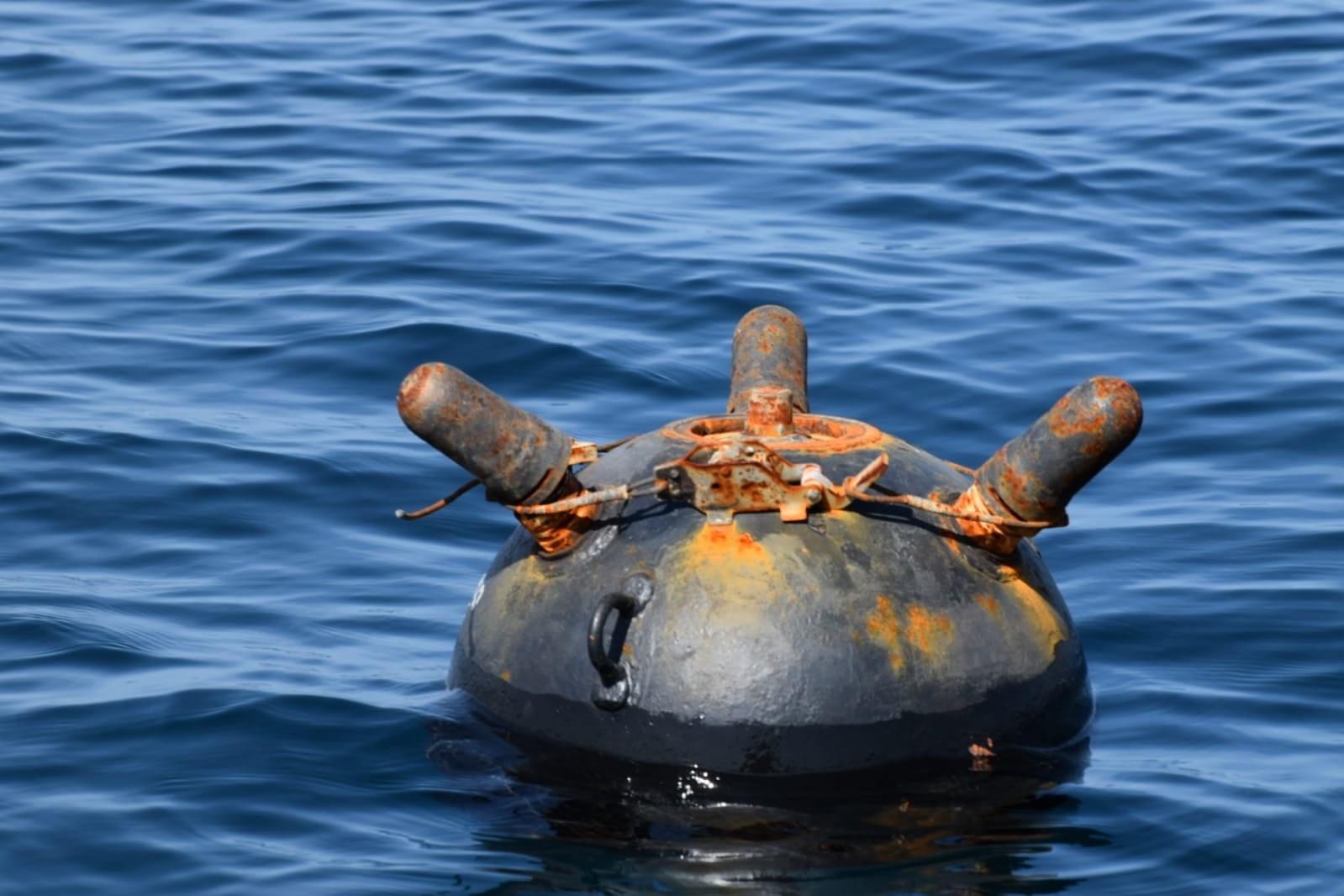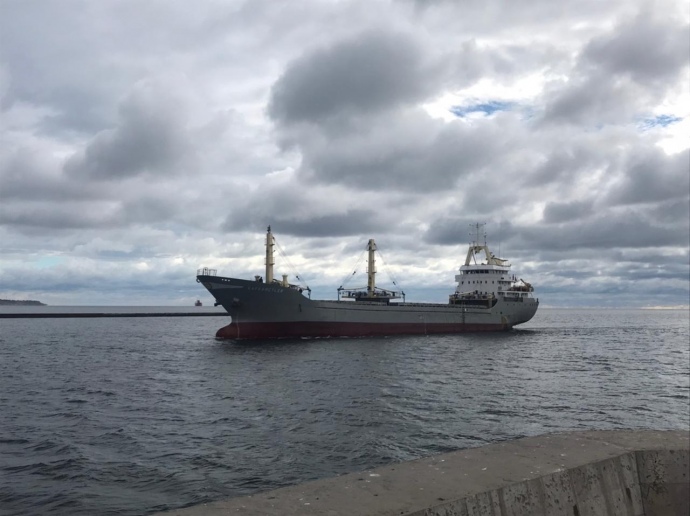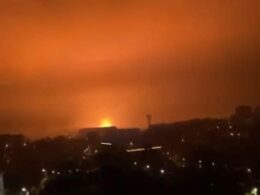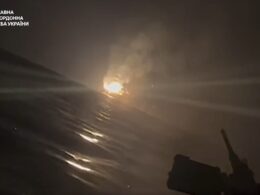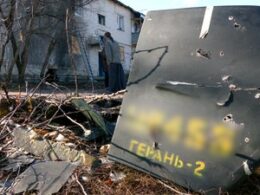Türkiye, Romania, and Bulgaria are considering creating a joint force to clear any mines drifting into their waters from Russia's war in Ukraine, Bloomberg reported, citing officials familiar with the talks.
The three NATO members bordering the Black Sea aim to set up the unit as early as next month, two officials said, speaking privately due to the confidential nature of the discussions.
With Russia's attacks getting closer to NATO borders, the alliance seeks to respond without escalating tensions. Debris and mines from the war increasingly threaten the only NATO countries with direct Black Sea access.
While not a formal NATO operation, the proposed joint mine-clearing force would mark regional allies' first major combined effort since Russia's invasion of Ukraine began. It intends to address the issue without bringing additional NATO naval forces to the sea, officials said.
One source explained that the mission aims to show that the countries can resolve the problem independently. During the war, NATO increased surveillance but not naval activity in the region.
Türkiye invoked an agreement allowing only littoral states' warships to transit the Black Sea, barring other NATO members to prevent escalation, Bloomberg said.
On 4 October, the British Foreign Office said intelligence released suggests Russia may use sea mines in the approach to Ukrainian ports to target civilian shipping in the Black Sea, blaming Ukraine for any attacks.
On 6 October, a Türkish-flagged cargo ship allegedly hit a mine in the Black Sea off the coast of Romania on the way to the Ukrainian port of Izmayil, maritime and security sources told Reuters. Yoruk Isik, the head of the Türkish Bosphorus Observer consultancy, told Reuters the Türkish cargo ship Kafkametler had sustained minor damage to a ballast tank with no casualties among the crew.
Russia maintains a de-facto blockade of Ukrainian seaports from the beginning of its full-scale invasion of Ukraine in February 2022. Last summer, the UN and Türkiye brokered a “grain deal” with Russia to enable Ukrainian agricultural exports by sea.
- On 17 July 2023, the Russian Federation withdrew from the Black Sea grain initiative and stated that it would not guarantee that it will not attack civilian vessels after that date. The Ukrainian defense ministry mirrored Russia’s threats to ships at sea.
- After that, Russia launched massive missile attacks on Odesa and the region with missiles and drones, destroying ports, granaries, residential buildings, and other facilities.
- NATO has condemned the Russian attacks but has thus far only vowed to increase surveillance. Meanwhile, Ukraine has changed the course of its grain corridor so that it stays within Romanian waters. Reportedly, the US declined Ukrainian requests to escort commercial vessels in the waters of NATO countries to ensure that the grain corridor keeps functioning.
- The Institute for Study of War has observed that Russia seems intent on enforcing a de-facto naval blockade of the Black Sea by intimidating civilian vessels in it. Particularly, a Russian warship told a ship that sailing to Ukraine could get it treated as a military target, according to an intercept shared by Ukrainian officials on 28 July.
- Nevertheless, on 31 July, merchant vessels sailed through Ukrainian territorial waters to ports on the Danube and Ukraine's Navy opened up registration for civilian ships to use the new corridors in the Black Sea.
- Since then, ships are successfully sailing from Ukrainian ports through the corridors.
Read also:
- Frontline report: Russia relocates Black Sea Fleet as Ukrainian threat looms
- Ukraine’s key Black Sea ports resume grain shipments despite Russian threats
- Romania and Ukraine work together to regulate Ukrainian grain exports
- Ukraine’s economy suffers as Russia destroys 280,000 tons of Ukrainian grain

